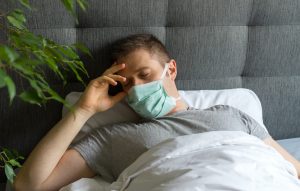
The same goes for a good night’s sleep. Although sleep struggles are nothing new, the stress and uncertainty of the pandemic has made restorative sleep elusive to vast numbers of people across the globe.
Two recent surveys have shown as much: one from the Journal of Clinical Sleep Medicine found that 58-percent of adults from 49 countries were unhappy with their sleep quality.
Another in the Journal of Sleep Health found that more than a third of people across 59 countries reported increased disturbances to nightly sleep.
Consistently poor sleep can have some serious health consequences. It can:
- Lead to a weaker immune system, which may lessen the efficacy of vaccines
- Boost risk factors for heart disease
- Increase risk for dementia
- Increase risk of early death
Getting inadequate sleep can mess with your hormones and metabolism too. This can lead to increased appetite and stronger cravings for sweet and salty foods.
Naps are one way to get you back on track. They can help supplement lost sleep time, although only to a degree.
It’s recommended that people get between seven and nine hours of sleep for every 24-hour period. And although it’s best to get that in a solid block during the night, it is not required. As long as the bulk of your sleep occurs overnight, you may be able to supplement with naps.
However, not all naps are created equal.
Fifteen to 45-minute naps, called power naps, appear to be the best. They can provide a mental and physical recharge, and you won’t wake up groggy or disoriented because you don’t enter full sleep.
Some longer naps can work, too. Sleep replacement naps can be up to two hours, and they take you through a complete sleep cycle. These naps are less effective at restoration than overnight sleep, but they can be used when needed.
The third type of nap is not good for you. These are the ones that happen because you’re so tired you simply can’t stay awake during the day. They are not restorative and could indicate a more severe sleep issue like sleep apnea or insomnia.
Paying attention to your sleep habits is a big part of overall health. Some tips that may help you fall asleep include relaxing without screens in the evening, avoiding big meals or snacks a few hours before bedtime, taking a warm bath, and limiting bedroom light.